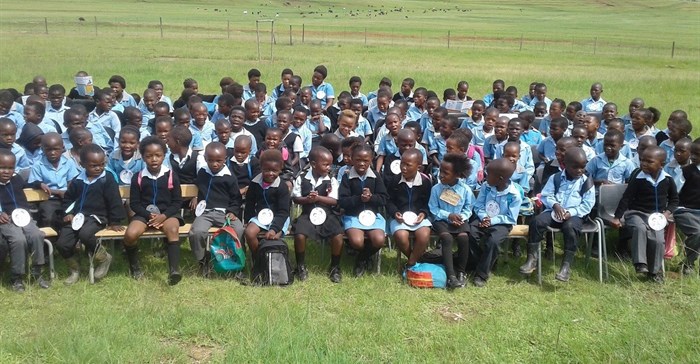
Top stories






More news


Marketing & Media
Ads are coming to AI. Does that really have to be such a bad thing?














“When we talk about rights, most people are surprised to learn that children have rights too, as many of these cannot be enforced by law – such as the right to be loved and cherished and because we mainly talk about the rights of adults. However, one of the key rights for children enshrined in the constitution is that of education,” explains Story Powered Schools programme manager, Michael Cekiso.
Also included in the constitution is support for multilingualism. However, lack of support is one of the key reasons that a huge number of children struggle to learn to read and write at school. Indeed, research shows that children who do not develop strong literacy skills in their mother tongue struggle in all school subjects. Currently, one third of children in South Africa are functionally illiterate and, adding to the problem, is the popular belief that reading for pleasure is a ‘nice to have’ rather than an important part of literacy learning that can support children’s learning across the curriculum.
Working to address these issues and empower adults and educators where they are, 60 Story Powered Schools staff members joined by 1 200 volunteers, led collective discussions on children’s literacy rights with school communities identified by the Department of Education as most in need of education interventions. These schools were located in the districts of Ugu and Uthukela in KwaZulu-Natal and Mbizana and Maluti in the Eastern Cape.
Guiding the conversation with both adults and children and contributing to the project’s mission to increase literacy resources in these areas, copies of the Nal’ibali campaign’s Children Literacy Rights Charter for adults and corresponding booklets for children in different language combinations were distributed.
“We used this opportunity to dispel any myths around children’s literacy learning and show adults and educators the important role they can play in their children’s language development simply by sharing a story with them in their mother tongue,” concludes Cekiso.
The charter highlights for adults the range of literacy experiences all children need to learn to read and write, and the booklet is an illustrated guide highlighting the different ways children can experience the written word. Both the booklet and charter are available for download from the Story Powered Schools' website and mobisite.